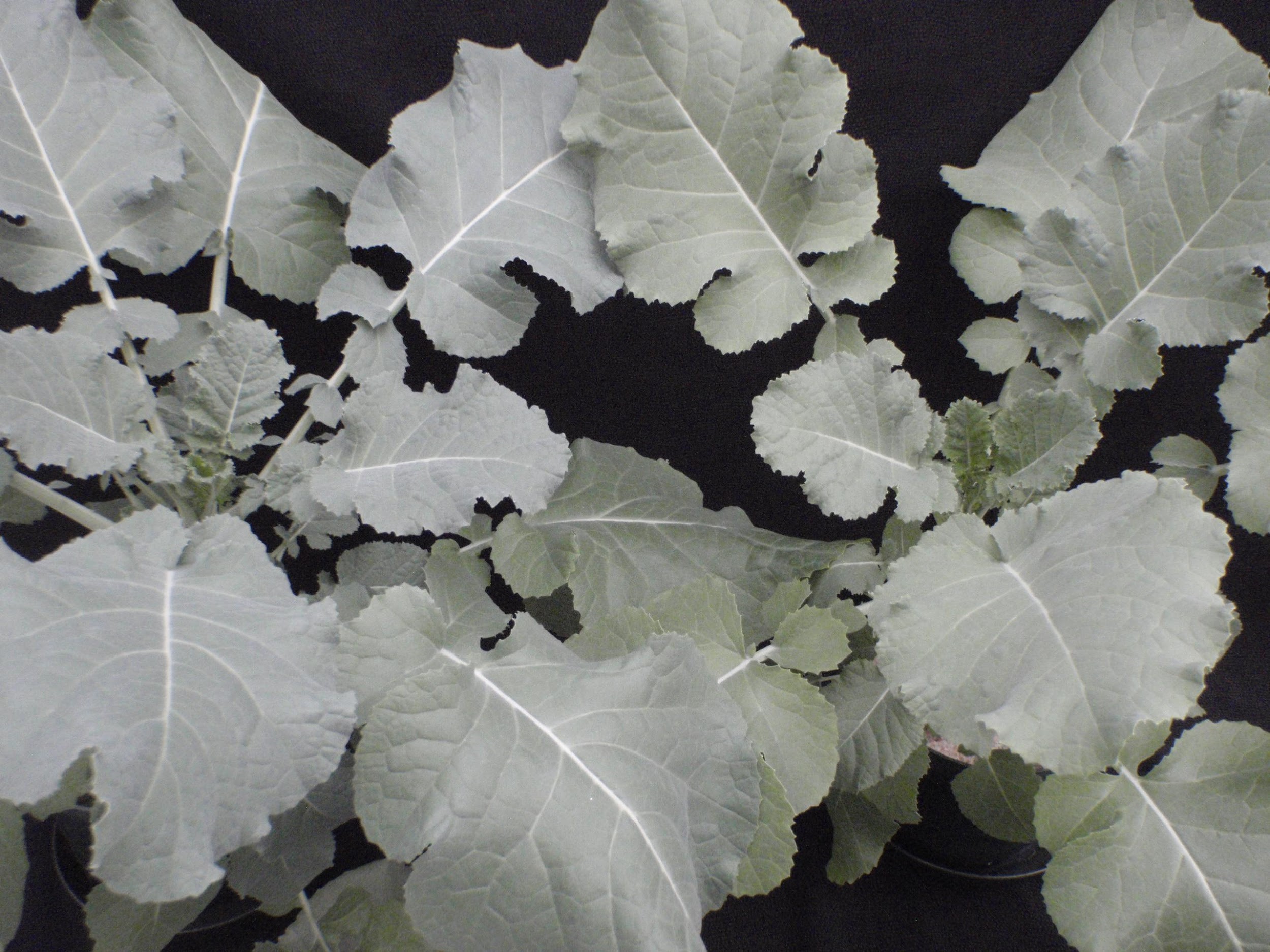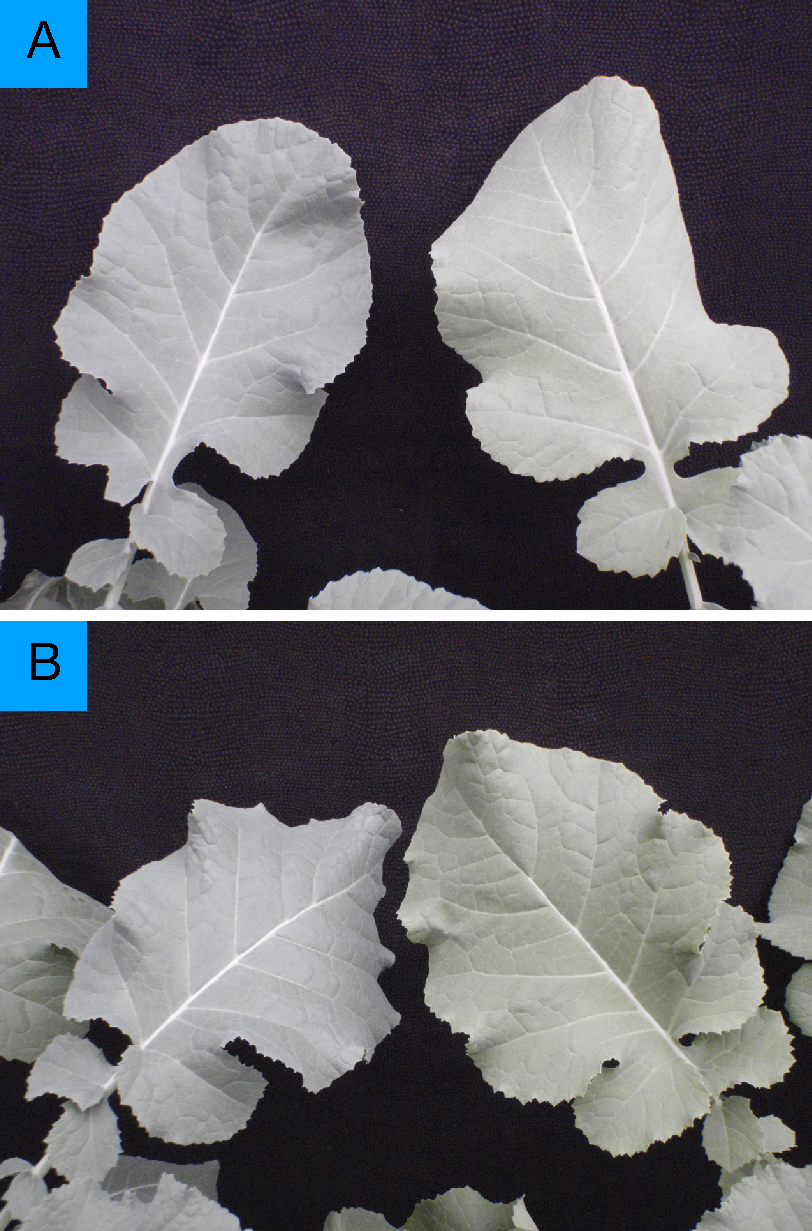Manganese Deficiency of Carinata
go.ncsu.edu/readext?520078
en Español / em Português
El inglés es el idioma de control de esta página. En la medida en que haya algún conflicto entre la traducción al inglés y la traducción, el inglés prevalece.
Al hacer clic en el enlace de traducción se activa un servicio de traducción gratuito para convertir la página al español. Al igual que con cualquier traducción por Internet, la conversión no es sensible al contexto y puede que no traduzca el texto en su significado original. NC State Extension no garantiza la exactitud del texto traducido. Por favor, tenga en cuenta que algunas aplicaciones y/o servicios pueden no funcionar como se espera cuando se traducen.
Português
Inglês é o idioma de controle desta página. Na medida que haja algum conflito entre o texto original em Inglês e a tradução, o Inglês prevalece.
Ao clicar no link de tradução, um serviço gratuito de tradução será ativado para converter a página para o Português. Como em qualquer tradução pela internet, a conversão não é sensivel ao contexto e pode não ocorrer a tradução para o significado orginal. O serviço de Extensão da Carolina do Norte (NC State Extension) não garante a exatidão do texto traduzido. Por favor, observe que algumas funções ou serviços podem não funcionar como esperado após a tradução.
English
English is the controlling language of this page. To the extent there is any conflict between the English text and the translation, English controls.
Clicking on the translation link activates a free translation service to convert the page to Spanish. As with any Internet translation, the conversion is not context-sensitive and may not translate the text to its original meaning. NC State Extension does not guarantee the accuracy of the translated text. Please note that some applications and/or services may not function as expected when translated.
Collapse ▲From the Field – Agronomy Notes
In this Brassica carinata (Ethiopian Mustard) research update, we highlight the symptoms of potassium deficiency. These images are part of a project by the Southeast Partnership for Advanced Renewables from Carinata (SPARC) to develop a diagnostic series for the identification of nutrient disorders of Carinata. Carinata is an exciting new crop in the Southeast used for a wide variety of primary and secondary agricultural products including cover crops, feedstock, high protein meal, and jet fuel. It is similar in management to canola given both canola and carinata are winter annual Brassica oilseed crops. However, carinata oil is not edible.
Diagnostic Information:
Manganese (Mn) is essential for various enzymatic processes in plants, including photosynthesis, respiration, hormonal regulation, and protein synthesis. The redox properties of Mn, where by Mn2+ ↔ Mn3+ + e–, catalyzes many oxidation-reduction processing in plants. Manganese deficiency can induce increased uptake of copper (Cu2+), zinc (Zn2+), and possibly iron (Fe2+) as the plant attempts to compensate for the lack of Mn2+ in a process known as compensatory uptake.
Manganese nutrient deficiency symptoms were observed later in growth trials than most other nutrients. When trying to diagnose a deficiency, look specifically at the upper foliage, as Mn is an immobile element and cannot translocate from the lower foliage to the upper foliage, where it is needed. Be advised that Mn nutrition can interfere with copper uptake, and vice-versa.
The plants were in the advanced stages of vegetative growth before symptomology emerged. The plants showed a general paling of the entire plant when compared with the control (Fig. 1). This paling was more pronounced on the mid and upper foliage (Fig. 2). More research is needed to document later stages of Mn deficiency. To ensure proper diagnosis the above material should be used in conjunction with a leaf tissue sample and/or field test.

Figure 1: The plant on the left received all its essential macro and micro nutrients while the plant on the right is experience manganese deficiency. Note specifically the pale coloration of the plant especially along the upper portions. ©2018 Forensic Floriculture

Figure 2: Manganese deficient plants showed a paling coloration (Right leaf, A and B). You can see this coloration was more developed in the upper (A) and mid (B) foliage. ©2018 Forensic Floriculture



Key Contact Central East:
Dr. Angela Post, Department of Crop and Soil Science – angela_post@ncsu.edu
Dr. Carl Crozier, Department of Crop and Soil Science – ccrozier@ncsu.edu
Key Contact South East:
Dr. Michael Mulvaney, UF/IFAS West Florida Research and Education Center– m.mulvaney@ufl.edu
Primary Authors: Paul Cockson, Dr. Carl Crozier, Dr. Ramon Leon, Dr. Michael Mulvaney, Dr. Angela Post, and Dr. Brian E. Whipker
Project Team: NC State Univ. personnel Paul Cockson (NC State B.S. student in Agroecology), Ingram McCall (Research Technician in Horticultural Science at NC State), Dr. Carl Crozier (Professor and Extension Specialist at NC State), Dr. Ramon Leon (Assistant Professor at NC State), Dr. Angela Post (Assistant Professor and Extension Specialist NC State), and Dr. Brian Whipker (Professor of Floriculture and Plant Nutrition in Horticultural Science at NC State). Univ. of Florida personnel Dr. Michael Mulvaney (Cropping Systems Specialist at UF/IFAS West Florida Research and Education Center.
Suggested Citation:
Cockson, P.1, C. Crozier1, R. Leon1, M. Mulvaney2, A. Post1, B. Whipker1. 2018. Manganese Deficiency of Carinata. North Carolina St. Univ. Small Grains Portal – From the Field-Agronomy Notes.
1North Carolina State University
2University of Florida
Funding and Acknowledgments:
Funding for this work/study was received through USDA-NIFA Bioenergy Coordinated Agricultural Project (CAP). This material is based upon work that is supported by the National Institute of Food and Agriculture, U.S. Department of Agriculture.





